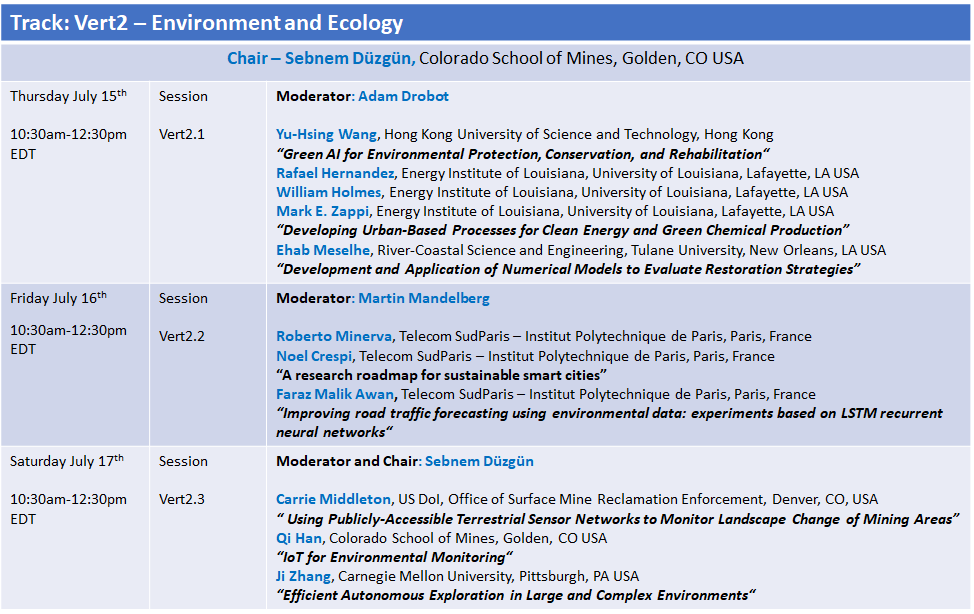Description
Human society in the 21st century is facing compelling problems related to Environment and Ecology. The scientific and engineering communities have been working on understanding the complex nature of ecological systems interacting with the environment and societies as well as developing innovative solutions for the critical problems that we face. Our environmental and ecological systems involve the interactions and impacts that affect our atmosphere, events on land, and in our seas and oceans.
WF-IoT 2021 is an open forum, which accommodates a broad range of end-users, academics, industry, and the public sector to lay out the role of IoT in understanding ecological systems and environmental problems and to delve into potential implementations of the connected systems provided by the IoT in environment and ecology, including all physical realms that affect our planet
IoT has been leveraging the development of green supply chain models, smart buildings, and cities with reduced solid and water waste. To reduce and control pollution, IoT plays a critical role in process optimization, design, and operation of energy-efficient production systems with reduced CO2 emissions. IoT provides experts dealing with monitoring the environmental processes operating in inaccessible, polluted, or uninhabitable spaces workplace safety. The emerging need for effective management of food, energy, and water (FEW) nexus calls for increased use of IoT in FEW systems. Smart farming systems have a tremendous positive impact on the environment by optimum use of fertilizers, irrigation, and plant protection substances in precision farming, which work with connected sensors, weather data, and images from drones or satellites. Such connected systems also enhance food security by improved crop yield and traceability of the food.
IoT is increasingly important in understanding the condition of our atmosphere, including local and global effects and the levels of the impacts that these changes have on natural phenomena and on human habitation. In the same way for a planet where water covers so much of the globe it is also important to understand and monitor the condition of our oceans, ranging from the changes in physical parameters, to the levels of pollution in our oceans, to the key role that our seas and oceans have on sustainment of life in the maritime environment and on land.
The need for the energy transition in tackling the climate change is a complex sociotechnical process, which has various impacts on the environment and the ecology. The process of energy transition and its interaction with the environment and ecology requires monitoring system performances and their impacts on FEW nexuses as well as ecological phenomena, biodiversity, wildlife conservation, habitat resilience. The deployment of IoT in this process is inevitable and will open doors to the innovative use of it.
IoT has great potential to bring about insight into the interaction of environment and ecology with sociotechnical systems emerging in the 4th industrial revolution. This track will provide a suite of presentations from end-users, industry, and academia on their cutting-edge work. Each session will also include a panel discussion to enable full participation between the audience and our invited experts.
The format of the Vertical Track on Environment and Ecology is to conduct multiple sessions, each focused on a specific aspect of the complex problems we face as a global society, with the sessions addressing aspects of the phenomena on land, in the atmosphere, and in our seas and oceans. A typical session consists of three presentations followed by a moderated discussion with open questions from the audience. Each session is two hours in length and will be conducted between 10:30am and 12:30pm US Eastern Time allowing us to attract a worldwide audience. We anticipate that the Track will consist of three sessions, provisionally scheduled for July 15th – July 17th, 2021.
Track Chair
Sebnem Düzgün, Professor of Mining Engineering, Colorado School of Mines, Golden, CO USA
 Dr. H. Sebnem Düzgün, was born in Nazilli, Turkey, and graduated the second in the class of 1992 from the Department of Mining Engineering at Middle East Technical University (METU), Ankara, Turkey. She started her graduate studies in the Department of Mining Engineering. She got her M.Sc. and Ph.D. Degrees in 1994 and 2000, respectively, from the same department. She was a visiting scholar in the Department of Civil and Environmental Engineering at MIT from 1998 to 1999 with an award given by the Turkish Scientific and Technical Council (TUBITAK). She was appointed as an assistant professor in the Geodetic and Geographic Information Technologies Program at METU in 2001. She performed research as a postdoctoral fellow from 2004 to 2005 at Norwegian Geotechnical Institute and International Center for Geohazards with a grant from the Norwegian Research Council. She then returned to the Department of Mining Engineering at METU in 2006 as an associate professor and became a full professor in 2010. Dr. Düzgün was awarded the Alexander von Humboldt Foundation’s experienced researcher fellowship in 2014 and used it to research at the Geophysical Institute at Karlsruhe Institute of Technology in Germany between 2015 and 2016. She has been over 20 years of experience in research and teaching in mining engineering on mine closure and reclamation, quantitative sustainability assessment for mining projects, risk and safety analysis for coal mines, mine environmental monitoring using remote sensing, reliability-based design and analysis of rock slopes, uncertainty modeling in rock engineering, and interdisciplinary topics including geographic information systems, remote sensing, spatial and spatio-temporal data mining, landslide and earthquake risk assessment, critical infrastructure resilience.
Dr. H. Sebnem Düzgün, was born in Nazilli, Turkey, and graduated the second in the class of 1992 from the Department of Mining Engineering at Middle East Technical University (METU), Ankara, Turkey. She started her graduate studies in the Department of Mining Engineering. She got her M.Sc. and Ph.D. Degrees in 1994 and 2000, respectively, from the same department. She was a visiting scholar in the Department of Civil and Environmental Engineering at MIT from 1998 to 1999 with an award given by the Turkish Scientific and Technical Council (TUBITAK). She was appointed as an assistant professor in the Geodetic and Geographic Information Technologies Program at METU in 2001. She performed research as a postdoctoral fellow from 2004 to 2005 at Norwegian Geotechnical Institute and International Center for Geohazards with a grant from the Norwegian Research Council. She then returned to the Department of Mining Engineering at METU in 2006 as an associate professor and became a full professor in 2010. Dr. Düzgün was awarded the Alexander von Humboldt Foundation’s experienced researcher fellowship in 2014 and used it to research at the Geophysical Institute at Karlsruhe Institute of Technology in Germany between 2015 and 2016. She has been over 20 years of experience in research and teaching in mining engineering on mine closure and reclamation, quantitative sustainability assessment for mining projects, risk and safety analysis for coal mines, mine environmental monitoring using remote sensing, reliability-based design and analysis of rock slopes, uncertainty modeling in rock engineering, and interdisciplinary topics including geographic information systems, remote sensing, spatial and spatio-temporal data mining, landslide and earthquake risk assessment, critical infrastructure resilience.
She is also on the Editorial Board of various scientific journals, namely Landslides, Journal of Sustainable Mining, Sustainability, Computers, and Geosciences; International Journal of Emergency Management; Georisk Journal; Energy Exploration & Exploitation; and The Open Construction and Building Technology Journal. Since 2008, Dr. Düzgün has served as an expert evaluator and reviewer for the FP7 and Horizon 2020 European Commission`s Research and Innovation Programs (including the themes ICT, Secure Societies, Critical Infrastructure and the RFCs-Research Fund for Coal and Steel). She is a member of SME, ASCE, ARMA, ISRM, IEEE, and ISPRS, USSD.
Dr. Düzgün has authored four books, published over 15 book chapters, more than 70 papers in peer-reviewed scientific Journals, over 150 papers in conferences. She is the principal author of the book entitled Remote Sensing of the Mine Environment. Dr. Düzgün’s recent research areas involve quantitative risk and resilience assessment for mining hazards and geohazards, big data analytics, Earth observation in geosciences, virtual/augmented/mixed reality (VR/AR/MR) and serious gaming for technical training and collaborative decision making and quantitative methods for sustainability assessment. Dr. Düzgün has established the collaborative immersive VR laboratory at Mines. She was the founder and former CEO of the software company, Kuzgun Informatics, in Turkey, contributor of two ceramic art exhibitions, the drummer of a local band, and is the mother of two sons.
Speakers
Ji Zhang, Carnegie Mellon University (CMU)
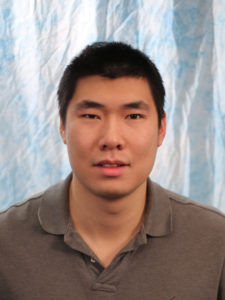 Ji Zhang is systems scientist at the Robotics Institute of CMU. He received his Ph.D. degree in 2017 with research focused on ego-motion estimation and mapping. His recent work addresses real-time collision avoidance for unmanned aerial vehicles. Ji Zhang is founder and served as Chief Scientist of Kaarta, Inc., a CMU spin-off commercializing the 3D lidar mapping and 3D modeling technologies that are the outcomes of his research work. His current research expanded to autonomous navigation of ground and aerial vehicles, collision avoidance, planning, and exploration.
Ji Zhang is systems scientist at the Robotics Institute of CMU. He received his Ph.D. degree in 2017 with research focused on ego-motion estimation and mapping. His recent work addresses real-time collision avoidance for unmanned aerial vehicles. Ji Zhang is founder and served as Chief Scientist of Kaarta, Inc., a CMU spin-off commercializing the 3D lidar mapping and 3D modeling technologies that are the outcomes of his research work. His current research expanded to autonomous navigation of ground and aerial vehicles, collision avoidance, planning, and exploration.
Title: Efficient Autonomous Exploration in Large and Complex Environments
Abstract: The talk addresses the autonomous exploration problem where autonomous vehicles can potentially be deployed into hazardous environments, contaminated or involving potential dangers for humans to enter, to autonomously navigate and map the environments without humans entering the environments. The autonomous exploration problem remains a challenging problem as solving for exploration paths requires creating and constantly updating a representation of the environment to keep track of the areas covered by the robot. Further, the process requires continuously searching for traversable paths through the environment that lead to complete coverage. In this talk, I will present our ongoing effort on autonomous exploration, which uses a hierarchical data structure to demonstrate efficient computation – one level in the data structure maintains data sparsely at the global scale, while another level maintains data densely within a local planning horizon around the robot. The path is computed at the two levels, coarsely at the global scale and finely around the robot. The insight is that only detailed paths are necessary in the vicinity of the robot, while coarse paths provide sufficient utilities far away from the robot. Our method trades off data density at the global scale for computational efficiency.
Qi Han, Department of Computer Science, Colorado School of Mines
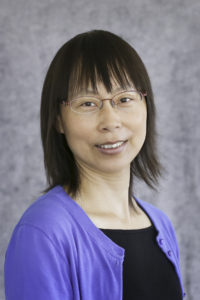 Qi Han is currently a Full Professor in the Department of Computer Science at the Colorado School of Mines. She founded and currently directs the Pervasive Computing Systems (PeCS) research group (http://pecs.mines.edu). Her broad research interests lie in the areas of pervasive computing and mobile systems, with current focus on applying mobile sensing, crowdsourcing, Internet of Things (IoT), swarm robotics, and real-time analytics to understand human activities and improve safety and efficiency of human life. She has also been active in interdisciplinary research where she has used IoT, mobile devices, drones, and wearables for different applications such as environmental monitoring, energy efficient buildings, improving underground safety, oil refinery inspection, intelligent transportation system, and small spacecraft. Her research has been funded by the National Science Foundation (NSF), National Aeronautics and Space Administration (NASA), US Army Research Lab, Department of Energy through collaboration with the National Renewable Energy Laboratories (NREL), and the Petroleum Institute at Abu Dhabi, UAE. Dr. Han holds a Ph.D. degree from the Donald Bren School of Information and Computer Sciences at the University of California, Irvine. She has served on a number of technical program committees for international conferences and held several workshop or conference program chair positions. She is an ACM Distinguished Speaker, an ACM senior member, and an IEEE senior member.
Qi Han is currently a Full Professor in the Department of Computer Science at the Colorado School of Mines. She founded and currently directs the Pervasive Computing Systems (PeCS) research group (http://pecs.mines.edu). Her broad research interests lie in the areas of pervasive computing and mobile systems, with current focus on applying mobile sensing, crowdsourcing, Internet of Things (IoT), swarm robotics, and real-time analytics to understand human activities and improve safety and efficiency of human life. She has also been active in interdisciplinary research where she has used IoT, mobile devices, drones, and wearables for different applications such as environmental monitoring, energy efficient buildings, improving underground safety, oil refinery inspection, intelligent transportation system, and small spacecraft. Her research has been funded by the National Science Foundation (NSF), National Aeronautics and Space Administration (NASA), US Army Research Lab, Department of Energy through collaboration with the National Renewable Energy Laboratories (NREL), and the Petroleum Institute at Abu Dhabi, UAE. Dr. Han holds a Ph.D. degree from the Donald Bren School of Information and Computer Sciences at the University of California, Irvine. She has served on a number of technical program committees for international conferences and held several workshop or conference program chair positions. She is an ACM Distinguished Speaker, an ACM senior member, and an IEEE senior member.
Title: IoT for Environmental Monitoring
Abstract: With the advances in computational, communication, and sensing capabilities, large-scale Internet of Things (IoT) based distributed systems are becoming a reality. However, the dynamic nature of IoT causes many uncertainties in supporting applications. In this talk, I will first discuss technical challenges we must address in order to enable wider adoption of IoT for different applications, then present two of our projects where IoT has been used: one for subsurface contaminant monitoring, and the other for adaptive landscape irrigation using reclaimed water.
Yu-Hsing WANG, Director and Founder of Data-Enabled Scalable Research (DESR) Laboratory, The Hong Kong University of Science and Technology
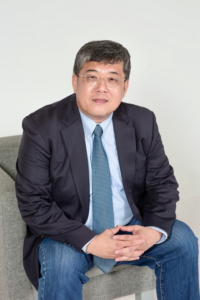 Prof. Yu-Hsing WANG received his B.S. and M.S. degrees in Civil Engineering from National Taiwan University and Ph.D. in Civil Engineering from Georgia Institute of Technology, where he received the George F. Sowers Distinguished Graduate Student Award for Ph.D. Students. Prof. Wang is a Professional Geotechnical Engineer in Taiwan since 1996. Currently, he is Professor and Associate Department Head at the Department of Civil and Environmental Engineering and founder/director of Data-Enabled Scalable Research (DESR) Laboratory, the Hong Kong University of Science and Technology (HKUST). In 2005, he received the ASTM International Hogentogler Award. In 2008 and 2017, he received the School of Engineering Teaching Award, HKUST. In 2013, he received the Distinguished Alumni Award from the Department of Civil Engineering, National Taiwan University. In addition, he has been invited for Keynote and theme lectures in the international conferences and served as associated editors and editorial board members in different journals.
Prof. Yu-Hsing WANG received his B.S. and M.S. degrees in Civil Engineering from National Taiwan University and Ph.D. in Civil Engineering from Georgia Institute of Technology, where he received the George F. Sowers Distinguished Graduate Student Award for Ph.D. Students. Prof. Wang is a Professional Geotechnical Engineer in Taiwan since 1996. Currently, he is Professor and Associate Department Head at the Department of Civil and Environmental Engineering and founder/director of Data-Enabled Scalable Research (DESR) Laboratory, the Hong Kong University of Science and Technology (HKUST). In 2005, he received the ASTM International Hogentogler Award. In 2008 and 2017, he received the School of Engineering Teaching Award, HKUST. In 2013, he received the Distinguished Alumni Award from the Department of Civil Engineering, National Taiwan University. In addition, he has been invited for Keynote and theme lectures in the international conferences and served as associated editors and editorial board members in different journals.
Prof. Wang is also the founder and director of the Data-Enabled Scalable Research Laboratory (DESR Lab) at the HKUST. The DESR Lab is a physical Makerspace, where faculty and students from different departments collaborate in multidisciplinary research. The mission of the DESR Lab is to innovate smart city infrastructures to connect citizens and decision-making. To achieve this goal, the DESR Lab specializes in the applications of Vertical AI, an integrated solution that combines Geotechnical Internet of Things (Geo-IoT), Big Data Analytics, and Deep Learning, etc., for sustainable urban development and city resilience. The DESR Lab has been working closely with industry and government departments, and Prof. Wang has been frequently invited to share the innovative research developments of the DESR Lab at different forums, seminars, and conferences organized by the government. In recent years, the DESR Lab has strived to develop Green AI for environmental protection, conservation, and rehabilitation.
Title: Green AI for Environmental Protection, Conservation, and Rehabilitation
Abstract: In this talk, the recent research development and innovations from the Data-Enabled Scalable Research (DESR) Laboratory of the HKUST will be present to showcase the effectiveness of the Green AI implementations for the environment and ecology. Different applications of Green AI, e.g., landslide monitoring and management, asset management of the sewage pumping station, urban forestry, bird watching for environmental impact assessment, monitoring of street pollution source (vehicles), etc., will be present first. Then, the focus of the talk will be put on the next-generation, AI-enabled sensors and sensing system that combines the power of advanced visual sensing with edge AI (AIoT) and robotics. Above all, the ultimate intention of this talk is to help us realize the future working model, i.e., the human-machine symbiosis, in the AI Era. That is, how we, civil and environmental engineers, can get empowered, but not overpowered, by AI in the digital world for environmental protection, conservation, and rehabilitation.
Mark E. Zappi, PE, Executive Director of the Energy Institute of Louisiana, BORSF Endowed Chair in Bioprocessing, Professor of Chemical Engineering, University of Louisiana
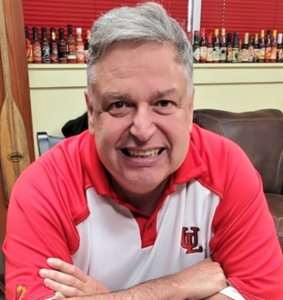 An internationally known expert on energy systems and environmental engineering, Mark E. Zappi currently holds the BORSF Endowed Chair in Bioprocessing at the University of Louisiana at Lafayette (UL). He holds professor appointments in both chemical engineering and civil engineering at UL. Dr. Zappi received his BS in Civil Engineering from UL and his MS and PhD in Chemical Engineering from Mississippi State University (MSU). He has held research leadership positions at the US Army Corps of Engineers Engineering Research and Development Center; Dave C. Swalm School of Chemical Engineering at MSU; and UL. He serves and has served on numerous state, national, and international energy and ecological related committees and panels. He has testified twice to the US Senate Energy and Natural Resources Committee and once to the Louisiana Public Service Commission. He has generated over $50M in research funds and has published over 200 technical publications. He is a sought-after consultant for energy initiatives with particular expertise with energy industry assessments and alternative energy system start-ups. He also has extensive consulting experience with environmental cleanup system design and assisting with research enterprise design. His technical expertise involves the use of biological agents and chemical oxidizers for processing of a wide variety of feedstock and input streams. He holds five patents and has three more pending. An internationally known expert on energy systems and environmental engineering, Mark E. Zappi currently holds the BORSF Endowed Chair in Bioprocessing at the University of Louisiana at Lafayette (UL). He holds professor appointments in both chemical engineering and civil engineering at UL. Dr. Zappi received his BS in Civil Engineering from UL and his MS and PhD in Chemical Engineering from Mississippi State University (MSU). He has held research leadership positions at the US Army Corps of Engineers Engineering Research and Development Center; Dave C. Swalm School of Chemical Engineering at MSU; and UL. He serves and has served on numerous state, national, and international energy and ecological related committees and panels. He has testified twice to the US Senate Energy and Natural Resources Committee and once to the Louisiana Public Service Commission. He has generated over $50M in research funds and has published over 200 technical publications. He is a sought-after consultant for energy initiatives with particular expertise with energy industry assessments and alternative energy system start-ups. He also has extensive consulting experience with environmental cleanup system design and assisting with research enterprise design. His technical expertise involves the use of biological agents and chemical oxidizers for processing of a wide variety of feedstock and input streams. He holds five patents and has three more pending.
An internationally known expert on energy systems and environmental engineering, Mark E. Zappi currently holds the BORSF Endowed Chair in Bioprocessing at the University of Louisiana at Lafayette (UL). He holds professor appointments in both chemical engineering and civil engineering at UL. Dr. Zappi received his BS in Civil Engineering from UL and his MS and PhD in Chemical Engineering from Mississippi State University (MSU). He has held research leadership positions at the US Army Corps of Engineers Engineering Research and Development Center; Dave C. Swalm School of Chemical Engineering at MSU; and UL. He serves and has served on numerous state, national, and international energy and ecological related committees and panels. He has testified twice to the US Senate Energy and Natural Resources Committee and once to the Louisiana Public Service Commission. He has generated over $50M in research funds and has published over 200 technical publications. He is a sought-after consultant for energy initiatives with particular expertise with energy industry assessments and alternative energy system start-ups. He also has extensive consulting experience with environmental cleanup system design and assisting with research enterprise design. His technical expertise involves the use of biological agents and chemical oxidizers for processing of a wide variety of feedstock and input streams. He holds five patents and has three more pending. An internationally known expert on energy systems and environmental engineering, Mark E. Zappi currently holds the BORSF Endowed Chair in Bioprocessing at the University of Louisiana at Lafayette (UL). He holds professor appointments in both chemical engineering and civil engineering at UL. Dr. Zappi received his BS in Civil Engineering from UL and his MS and PhD in Chemical Engineering from Mississippi State University (MSU). He has held research leadership positions at the US Army Corps of Engineers Engineering Research and Development Center; Dave C. Swalm School of Chemical Engineering at MSU; and UL. He serves and has served on numerous state, national, and international energy and ecological related committees and panels. He has testified twice to the US Senate Energy and Natural Resources Committee and once to the Louisiana Public Service Commission. He has generated over $50M in research funds and has published over 200 technical publications. He is a sought-after consultant for energy initiatives with particular expertise with energy industry assessments and alternative energy system start-ups. He also has extensive consulting experience with environmental cleanup system design and assisting with research enterprise design. His technical expertise involves the use of biological agents and chemical oxidizers for processing of a wide variety of feedstock and input streams. He holds five patents and has three more pending.
Title: Developing Urban-Based Processes for Clean Energy and Green Chemical Production
Abstract: Urban areas have historically been regions of high resource utilization for both energy and chemicals. As a result, they produce a tremendous amount of waste carbon in the form of C1 gases and organic refuse. Numerous processes are under development that can convert urban areas from simply resource users to both users and producers via a variety of green processes under development. This presentation will focus on promising processes that can produce with energy and/or chemicals within urban settings while doing this via net zero carbon emission.
Roberto Minerva, Maitre de Conferences, Telecom SudParis, Institut Polytechnique de Paris, Paris, France
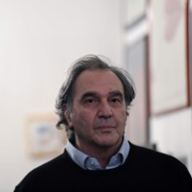 Roberto Minerva holds a Ph.D in Computer Science and Telecommunications from Telecom Sud Paris, France, and a master’s degree in computer science from Bari University, Italy. He is Maitre de Conference (Associate Professor) at Institut Mine-Telecom, Telecom Sud Paris, part of the Institut Polytechnique de Paris. His research topics and contributions fall in Softwarization and networks (edge computing, virtualization and SDN), Internet of Things and Digital Twin, Artificial Intelligence and Machine Learning. He was the Chairman of the IEEE IoT Initiative, an effort to nurture a technical community and to foster research in IoT. Roberto has been for several years in TIMLab, leading research lines and carry out research on network intelligence and programmability, service architecture, SDN/NFV, 5G, Big Data, architectures for IoT. He is authors of many papers published in international journals, magazine, conferences, and several books.
Roberto Minerva holds a Ph.D in Computer Science and Telecommunications from Telecom Sud Paris, France, and a master’s degree in computer science from Bari University, Italy. He is Maitre de Conference (Associate Professor) at Institut Mine-Telecom, Telecom Sud Paris, part of the Institut Polytechnique de Paris. His research topics and contributions fall in Softwarization and networks (edge computing, virtualization and SDN), Internet of Things and Digital Twin, Artificial Intelligence and Machine Learning. He was the Chairman of the IEEE IoT Initiative, an effort to nurture a technical community and to foster research in IoT. Roberto has been for several years in TIMLab, leading research lines and carry out research on network intelligence and programmability, service architecture, SDN/NFV, 5G, Big Data, architectures for IoT. He is authors of many papers published in international journals, magazine, conferences, and several books.
Noel Crespi, Telecom SudParis, Institut Polytechnique de Paris, Paris, France
 Professor Noël Crespi holds master’s degrees from the Universities of Paris Saclay and Canterbury, a Diplome d’ingénieur from Telecom ParisTech and a Ph.D and Habilitation from Sorbonne University.From 1993-95 he worked at CLIP, Bouygues Telecom, before joining France Telecom R&D in 1995 where he was involved in Intelligent Network paradigms for value added services. For Orange he led the Mobicarte prepaid service project to define, architect and deploy an infrastructure that hosted more than 10 million mobile subscribers. He has played a key role in standardization as a delegate in several committees and as the editor for CAMEL, the Intelligent Network standard for mobile networks. He was appointed as the coordinator for France Telecom’s standardization activities for Core Network and then for all GSM/UMTS standards at the ETSI plenary committee. In 1999, he joined Nortel Networks and led key programs for the evolution of Nortel products. He has also worked for ETSI as an independent contractor. He joined Institut Mines-Telecom, Institut Polytechnique de Paris in 2002 and is currently Professor and MSc Programme Director, leading the Data Intelligence and Communication Engineering laboratory (DICE). He coordinates the standardization activities for Institut Mines-Telecom at ETSI, 3GPP and ITU-T. He is also an adjunct professor at KAIST (South Korea), an affiliate professor at Concordia University (Canada), and gest researcher at the University of Göttingen (Germany). He is the scientific director the French-Korean laboratory ILLUMINE. His current research interests are in AI, Data Analytics, Internet of Things and Softwarization. He is the author/co-author of 350 articles and 150 contributions in standardization.
Professor Noël Crespi holds master’s degrees from the Universities of Paris Saclay and Canterbury, a Diplome d’ingénieur from Telecom ParisTech and a Ph.D and Habilitation from Sorbonne University.From 1993-95 he worked at CLIP, Bouygues Telecom, before joining France Telecom R&D in 1995 where he was involved in Intelligent Network paradigms for value added services. For Orange he led the Mobicarte prepaid service project to define, architect and deploy an infrastructure that hosted more than 10 million mobile subscribers. He has played a key role in standardization as a delegate in several committees and as the editor for CAMEL, the Intelligent Network standard for mobile networks. He was appointed as the coordinator for France Telecom’s standardization activities for Core Network and then for all GSM/UMTS standards at the ETSI plenary committee. In 1999, he joined Nortel Networks and led key programs for the evolution of Nortel products. He has also worked for ETSI as an independent contractor. He joined Institut Mines-Telecom, Institut Polytechnique de Paris in 2002 and is currently Professor and MSc Programme Director, leading the Data Intelligence and Communication Engineering laboratory (DICE). He coordinates the standardization activities for Institut Mines-Telecom at ETSI, 3GPP and ITU-T. He is also an adjunct professor at KAIST (South Korea), an affiliate professor at Concordia University (Canada), and gest researcher at the University of Göttingen (Germany). He is the scientific director the French-Korean laboratory ILLUMINE. His current research interests are in AI, Data Analytics, Internet of Things and Softwarization. He is the author/co-author of 350 articles and 150 contributions in standardization.
Talk Title: “General purpose sensing: A Research Roadmap for the Sustainable Smart City”
Abstract: This talk will cover an introduction to general purpose sensing and its potential exploitation in the context of smart cities. The focus will be on establishing the relationship between the environmental and ecological observables and the sustainability of a Smart and Instrumented City. The concept of “signatures” and their relations with Digital Twins will also be discussed and the possible applications related to sustainability will be presented.
Faraz Malik Awan, Research Engineer at Télécom SudParis Institut Polytechnique de Paris, Paris France
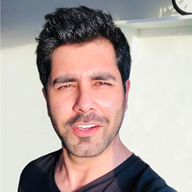 Faraz Malik Awan is a Machine Learning Engineer/Data Scientist. He lives in Paris, France. His hometown is Islamabad, Pakistan. After completing high school education from Islamabad Model College, he joined COMSATS Institute of Information Technology and completed his BS Computer Science degree with distinction. After completing his BS degree, he started working for a German corporation, Deutsche Gesellschaft für Internationale Zusammenarbeit (GIZ) as a Software Engineer. Later, he moved to South Korea and completed his MS in Computer Science and Engineering, majoring in System Software from Chung-Ang University, Seoul, South Korea. Currently, he is working as a Research Engineer at Telecom SudParis which is in collaboration with his Ph.D. from Institut Polytechnique de Paris. He is conducting research on Smart Cities and IoT data, exploiting Machine/Deep Learning approaches. His research interest includes Smart Cities, Machine/Deep Learning, NLP, Data Analytics, and Context-Aware Systems.
Faraz Malik Awan is a Machine Learning Engineer/Data Scientist. He lives in Paris, France. His hometown is Islamabad, Pakistan. After completing high school education from Islamabad Model College, he joined COMSATS Institute of Information Technology and completed his BS Computer Science degree with distinction. After completing his BS degree, he started working for a German corporation, Deutsche Gesellschaft für Internationale Zusammenarbeit (GIZ) as a Software Engineer. Later, he moved to South Korea and completed his MS in Computer Science and Engineering, majoring in System Software from Chung-Ang University, Seoul, South Korea. Currently, he is working as a Research Engineer at Telecom SudParis which is in collaboration with his Ph.D. from Institut Polytechnique de Paris. He is conducting research on Smart Cities and IoT data, exploiting Machine/Deep Learning approaches. His research interest includes Smart Cities, Machine/Deep Learning, NLP, Data Analytics, and Context-Aware Systems.
Talk Title: “Improving road traffic forecasting using environmental data: experiments based on LSTM recurrent neural networks.”
Abstract: This talk will illustrate the system, data, processes, and Machine Learning algorithms used in two experiments aiming at improving traffic prediction by adding environmental sensing data such as pollution, meteorological conditions, and environmental noise to the observed traffic time series. The attempt is used to identify “traffic signatures”, which will be also described.
Ehab Meselhe, Professor River-Coastal Science and Engineering, Tulane University, New Orleans, LA USA
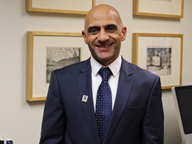 Ehab Meselhe, Ph.D., P.E., is Professor in the Department of River-Coastal Science and Engineering at Tulane University. Dr. Meselhe has more than 25 years of experience researching coastal wetland hydrology, sediment transport, and computer modeling of coastal wetland, estuarine, and riverine systems. He worked as an educator, researcher, and practitioner with extensive experience working with academic institutions, government agencies, and the private sector. Dr. Meselhe served as Louisiana’s technical lead for the Mississippi River Hydrodynamic and Delta Management Study and helped build the numerical models that provided a foundation for Louisiana’s 2012 and 2017 Coastal Master Plans. Dr. Meselhe is heavily involved in the numerical modeling being used by Louisiana to help refine the design of sediment diversions at Mid-Barataria and Mid-Breton along the Mississippi River. Dr. Meselhe is a registered Professional Engineer in the sates of Iowa and Louisiana. He also served as an Associate Editor of the Journal of Hydrology (Elsevier), and the Journal of Hydraulic Research (International Association of Hydraulic Research).
Ehab Meselhe, Ph.D., P.E., is Professor in the Department of River-Coastal Science and Engineering at Tulane University. Dr. Meselhe has more than 25 years of experience researching coastal wetland hydrology, sediment transport, and computer modeling of coastal wetland, estuarine, and riverine systems. He worked as an educator, researcher, and practitioner with extensive experience working with academic institutions, government agencies, and the private sector. Dr. Meselhe served as Louisiana’s technical lead for the Mississippi River Hydrodynamic and Delta Management Study and helped build the numerical models that provided a foundation for Louisiana’s 2012 and 2017 Coastal Master Plans. Dr. Meselhe is heavily involved in the numerical modeling being used by Louisiana to help refine the design of sediment diversions at Mid-Barataria and Mid-Breton along the Mississippi River. Dr. Meselhe is a registered Professional Engineer in the sates of Iowa and Louisiana. He also served as an Associate Editor of the Journal of Hydrology (Elsevier), and the Journal of Hydraulic Research (International Association of Hydraulic Research).
Title: Development and Application of Numerical Models to Evaluate Restoration Strategies
Abstract: Various strategies such as sediment diversions and dedicated dredging were proposed as a large scale restoration tools in the Coastal Master Plan by the State of Louisiana Coastal Protection and Restoration Authority. The primary goal of the proposed restoration strategies is to create new wetlands and replenish existing areas that are deteriorating as a result of many causes, including hydrological disconnection from the Lower Mississippi River. Computer models have been effective tools that provide quantitative insights on the performance of these proposed restoration strategies. They are being used to quantify benefits, assess potential impacts, and provide recommendation on possible remedial actions to minimize undesirable environmental outcomes. The skills and level of details included in these numerical tools continue to increase as computing resources improve. The ability to represent longer temporal durations as well as capturing higher spatial resolutions are critical attributes so that numerical models could provide viable assessment to decision makers on the level of risk involved in implementation of proposed restoration strategies.
Dr. Rafael Hernandez, University of Louisiana at Lafayette, USA
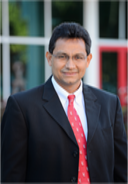 Dr. Hernandez has over 100 peer-reviewed publications in several project related areas including biofuel production, sewage sludge to lipids, green chemistry, and bio-processing. Dr. Hernandez was one of the pioneers on investigating the transformation of wastewater treatment facilities as oil generation centers for the production of biofuels. He worked closely with several industries (e.g., pulp and paper, food processing, and animal raising facilities) to implement the concept at the bench and pilot scales. His research group successfully demonstrated that the mixed microbial consortium in wastewater treatment facilities can be transformed into an oleaginous consortium for oil production, when grown under a high carbon-nitrogen ratio. He has conducted and published several studies on the conversion of this oil into biofuels via homogeneous and heterogeneous catalysis. He has also worked on the transformation of activated sludge into other value-added products, such as drilling fluids and corrosion inhibitors.
Dr. Hernandez has over 100 peer-reviewed publications in several project related areas including biofuel production, sewage sludge to lipids, green chemistry, and bio-processing. Dr. Hernandez was one of the pioneers on investigating the transformation of wastewater treatment facilities as oil generation centers for the production of biofuels. He worked closely with several industries (e.g., pulp and paper, food processing, and animal raising facilities) to implement the concept at the bench and pilot scales. His research group successfully demonstrated that the mixed microbial consortium in wastewater treatment facilities can be transformed into an oleaginous consortium for oil production, when grown under a high carbon-nitrogen ratio. He has conducted and published several studies on the conversion of this oil into biofuels via homogeneous and heterogeneous catalysis. He has also worked on the transformation of activated sludge into other value-added products, such as drilling fluids and corrosion inhibitors.
Title: Developing Urban-Based Processes for Clean Energy and Green Chemical Production
William (Bill) Holmes, Director of Analytics and Process Chemistry, Energy Institute of Louisiana, University of Louisiana, USA
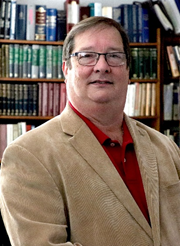 For nearly 40 years Bill Holmes has been involved with instrumentation used for analytical chemistry separation and identification of organic chemicals. He has published over 80 scientific papers and given lectures at both national and international conferences. His research has focused on method development of various analyses from life science, petroleum, pharmaceutical, environmental, food science and basic chemical. Before returning to academics his experiences in R & D at a leading instrument company has allowed him to gain expertise in instrumental hardware design and modifications to adapt to new or changing methodologies. His current research projects at UL include analysis and instrumentation development for biotechnology such as on-line systems for rapid monitoring of reaction processes and separation and identification of proteins in biological systems. He is a member of the American Chemical Society, American Society of Mass Spectrometry, American Oil Chemists Society, and the Association of Official Analytical Chemist and recipient of the Mississippi State University’s 2012 Bagley College of Engineering Research Award. Holmes is also the recipient of the University of Louisiana 2015 Research Award, 2016-2017 Research Innovator Award, and chairs the UL Biosafety Committee.
For nearly 40 years Bill Holmes has been involved with instrumentation used for analytical chemistry separation and identification of organic chemicals. He has published over 80 scientific papers and given lectures at both national and international conferences. His research has focused on method development of various analyses from life science, petroleum, pharmaceutical, environmental, food science and basic chemical. Before returning to academics his experiences in R & D at a leading instrument company has allowed him to gain expertise in instrumental hardware design and modifications to adapt to new or changing methodologies. His current research projects at UL include analysis and instrumentation development for biotechnology such as on-line systems for rapid monitoring of reaction processes and separation and identification of proteins in biological systems. He is a member of the American Chemical Society, American Society of Mass Spectrometry, American Oil Chemists Society, and the Association of Official Analytical Chemist and recipient of the Mississippi State University’s 2012 Bagley College of Engineering Research Award. Holmes is also the recipient of the University of Louisiana 2015 Research Award, 2016-2017 Research Innovator Award, and chairs the UL Biosafety Committee.



